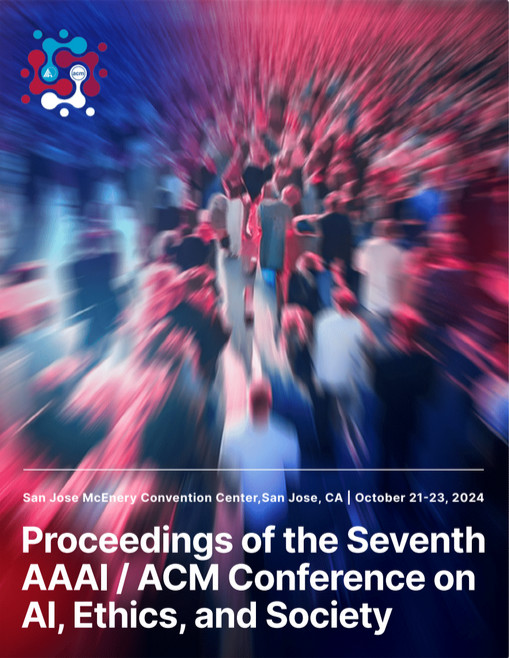The Code That Binds Us: Navigating the Appropriateness of Human-AI Assistant Relationships
DOI:
https://doi.org/10.1609/aies.v7i1.31694Abstract
The development of increasingly agentic and human-like AI assistants, capable of performing a wide range of tasks on user's behalf over time, has sparked heightened interest in the nature and bounds of human interactions with AI. Such systems may indeed ground a transition from task-oriented interactions with AI, at discrete time intervals, to ongoing relationships -- where users develop a deeper sense of connection with and attachment to the technology. This paper investigates what it means for relationships between users and advanced AI assistants to be appropriate and proposes a new framework to evaluate both users' relationships with AI and developers' design choices. We first provide an account of advanced AI assistants, motivating the question of appropriate relationships by exploring several distinctive features of this technology. These include anthropomorphic cues and the longevity of interactions with users, increased AI agency, generality and context ambiguity, and the forms and depth of dependence the relationship could engender. Drawing upon various ethical traditions, we then consider a series of values, including benefit, flourishing, autonomy and care, that characterise appropriate human interpersonal relationships. These values guide our analysis of how the distinctive features of AI assistants may give rise to inappropriate relationships with users. Specifically, we discuss a set of concrete risks arising from user--AI assistant relationships that: (1) cause direct emotional or physical harm to users, (2) limit opportunities for user personal development, (3) exploit user emotional dependence, and (4) generate material dependencies without adequate commitment to user needs. We conclude with a set of recommendations to address these risks.Downloads
Published
2024-10-16
How to Cite
Manzini, A., Keeling, G., Alberts, L., Vallor, S., Morris, M. R., & Gabriel, I. (2024). The Code That Binds Us: Navigating the Appropriateness of Human-AI Assistant Relationships. Proceedings of the AAAI/ACM Conference on AI, Ethics, and Society, 7(1), 943-957. https://doi.org/10.1609/aies.v7i1.31694
Issue
Section
Full Archival Papers

